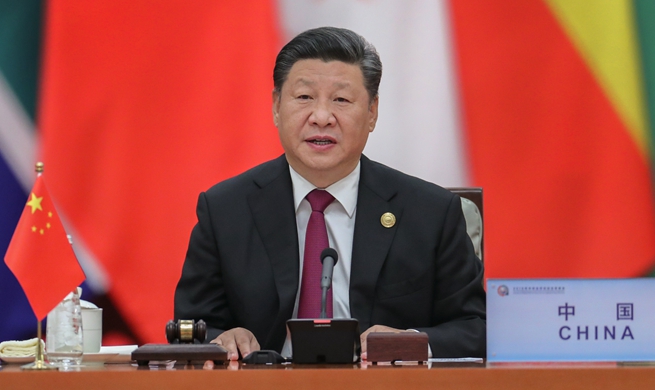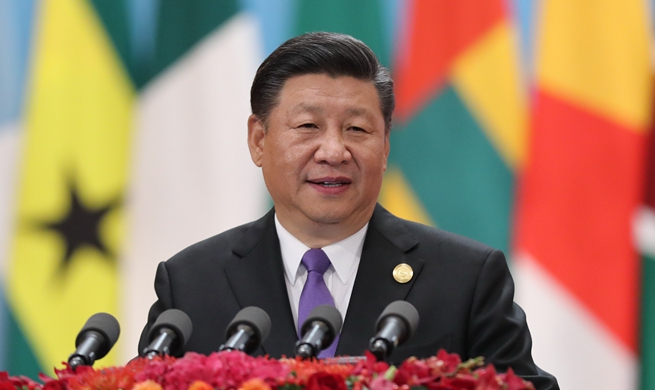BERLIN, Sept. 5 (Xinhua) -- The German government adopted a motion on Wednesday which seeks to promote the development of cutting-edge technologies in the country with a multi-billion-euro research spending program.
The "grand coalition" formed by Chancellor Angela Merkel's CDU/CSU bloc and German Social Democrats (SPD) agreed to enact a "High-Tech Strategy 2025" which will extend and expand a similar initiative currently in place.
The strategy will witness a total public investment of 15 billion euros (17.4 billion U.S. dollars) in specific research areas to which Berlin attaches a key technological priority.
Commenting on the motion, German research minister Anja Karliczek said that it was a declared goal of Merkel's government that resulting innovations benefited as many citizens as possible. "We can enhance societal cohesion by gearing the program to the needs of people," Karliczek said.
The minister pointed to areas such as cancer research and ways to reduce marine pollution as promising fields for the funding in question to be applied to in this context.
Further examples including developing a German battery cell production, technologies to protect ecological diversity, green mobility solutions and artificial intelligence (AI).
Karliczek highlighted that a previous official High-Tech Strategy had already enabled Germany to become one of only a few European Union (EU) members for whom a goal to spend 3 percent of gross domestic product (GDP) on research and development was now within grasp.
By 2025, Berlin hopes to increase the ratio of research investment to GDP further to 3.5 percent.
While welcoming the government initiative on Wednesday, the Federation of German Industries (BDI) urged policymakers to give businesses a bigger role in the strategy as actors who could translate research findings into innovation.
The federal ministry for research said that creating private sector tax incentives formed a "second pillar" of its strategy to promote innovation which it would now turn its attention to.













